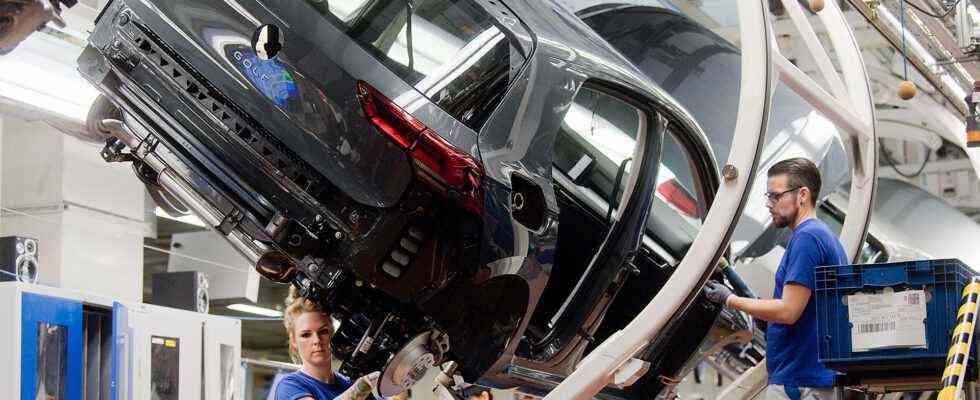Status: 13.10.2021 12:41 p.m.
The switch to electric car production has apparently led to a dispute in the VW supervisory board. In extreme cases, CEO Diess sees every fourth job at the core brand threatened – and demands more efficient production in Wolfsburg.
The peace in the VW supervisory board apparently did not last long: After the leadership dispute, which has now ended and the month-long power struggle between VW boss Diess and the works council, a new uproar is said to have arisen at the last meeting of the supervisory body. The “Handelsblatt” reported that this surprised and annoyed the supervisory boards with simulation games for job cuts.
The head of the Wolfsburg-based car manufacturer has therefore had several scenarios for the future of VW calculated. In the extreme scenario, up to 30,000 jobs are at risk if the core brand Volkswagen is too slow in converting cars with combustion engines to e-models, the news agency reported Reuters. That would be every fourth of the 120,000 jobs in Germany.
Model Tesla
Diess wants to radically rebuild the group and imitate the electric car manufacturer Tesla. The US rival plans to produce a good 500,000 e-cars a year with a good 10,000 employees in its first German plant in Grünheide near Berlin. At VW, a good half a million cars were also manufactured in the Corona year 2020 – and that with around 25,000 employees who work in production at VW’s main plant in Wolfsburg.
“Tesla in Grünheide will set new standards in productivity and scales,” said a VW spokesman. Therefore, the Volkswagen parent plant has to deal with its competitiveness. At a recent meeting with executives, Diess also mentioned the new Tesla factory as a benchmark, in which a car is built faster than at VW.
“Trinity will revolutionize Wolfsburg”
With the “Trinity” project, the second generation of electric cars will roll off the production line at Volkswagen from 2026 onwards. The flagship model is to be manufactured in Wolfsburg. Production will then be simplified with a new vehicle architecture. “Trinity will revolutionize Wolfsburg,” said Diess at the management meeting, according to “Handelsblatt”.
VW management has already converted some plants such as Zwickau and Brussels to the E-era. The locations in Hanover and Emden are currently still in the process of transformation. The main plant in Wolfsburg, where the Golf and Tiguan in particular are manufactured, has so far held a special position.
Resistance in the board of directors
The supervisory board is apparently angry about the downsizing plans of CEO Diess. Controllers have demanded that Diess do not bring any further scenarios with massive job cancellations into circulation, according to the “Handelsblatt”. The committee is said to have asked the VW boss to calculate new scenarios at the next meeting on November 12th – without cutting tens of thousands of jobs.
Up until now, VW had always emphasized that the bottom line was that switching to electromobility would not cost any jobs. At the IAA auto show, HR director and supervisory board member Gunnar Kilian recently affirmed that e-cars are not job killers. A study by the Fraunhofer Institute commissioned by VW came to the conclusion that, due to productivity, the number of employees at the VW locations in Wolfsburg, Hanover, Ende, Zwickau, Dresden and Osnabrück will decrease by around twelve percent by 2030. Most of the jobs in body construction and assembly will be retained.
Number of employees already decreased
However, other experts predict significantly greater job losses due to e-mobility. The National Platform for the Future of Mobility sees almost 410,000 jobs in the automotive industry threatened by 2030. The Institute for Policy Evaluation expects 600,000 fewer jobs in the auto industry by 2040.
According to information from IG Metall, job cuts in the entire industry are already in full swing. Employment in the German auto industry fell by 1.3 percent in 2019. In 2020, the number of employees shrank even more by 2.6 percent.

